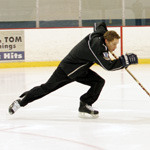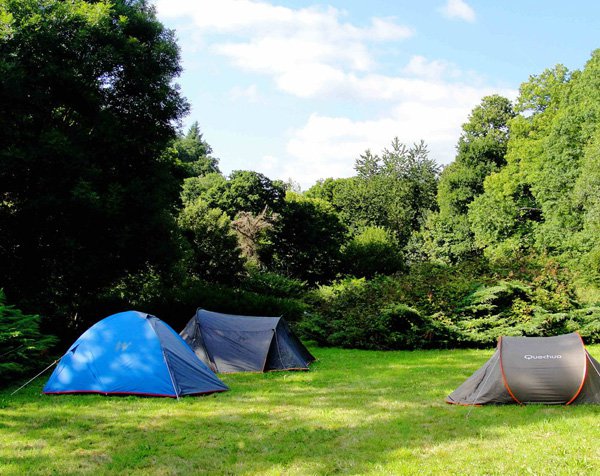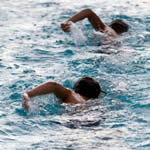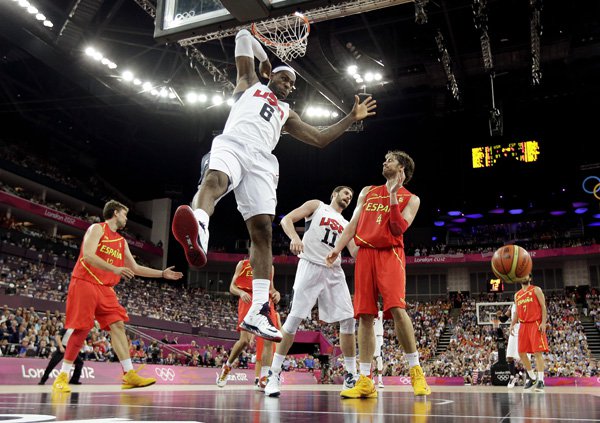Hockey is an intricate and difficult sport. It requires many skills, all of which are separate and distinct, yet inter-related and mutually dependent. To master each skill takes years of practice and dedication.
Some of these skills include stick handling, passing, shooting, pass reception, offensive play, defensive play, team systems, etc.
Add to these other areas of training for hockey - conditioning (strength, power, explosiveness, and flexibility), nutrition, rest, eye training, mental awareness, and you can see that becoming a "complete" hockey player is a full time job.
The one skill that I have not mentioned is the one tends to be overlooked and too often underestimated. Yet it is in actuality the most fundamental skill in hockey – skating.
Little can be accomplished unless you can move FAST on the ice; with or without the puck! From stop to go, from slow to fast, when skating forward, when skating backward, while cornering, turning, transitioning. When fore checking or when back checking. Even when shooting (i.e., on the fly). Hockey is now more than ever a sport of blazing speed; a sport that requires players to be masters of balance, agility, and maneuverability (BAM), all while on a platform as thin as a knife blade.
Players might be great puck handlers, but if they can't skate fast with the puck their effectiveness is limited. What many people do not understand is that skating speed is largely affected by skating technique, and that skating technique is a separate, distinct and indispensable aspect of hockey training.
Parents have told me, thousands of times, "my son/daughter is a great hockey player – he/she just can't skate well enough." This statement reflects a lack of understanding of the sport. How can one be a great hockey player if he or she can't skate well (fast)??? The sport involves movement. Those who move at a turtle's pace inevitably get left behind.
Coaches, parents, and players subscribe readily to the regimen of off ice training and some of the other hockey skills, but getting them to subscribe to the regimen of a comprehensive and ongoing power skating program can be like pulling teeth. The premise appears to be that with proper off ice training and lots of sprint skating players will get faster and their over-all performance will improve.

In practices players are put through a lot of "fast" skating (often with horrific skating technique) because coaches want them to develop "fast feet". However, it's quite possible (and all too common) for players to move their feet fast and still go nowhere (I call this going nowhere fast). Keep in mind that speed is a measure of distance traveled in time, so for each stride taken it is imperative to cover distance!
I wholeheartedly agree that proper off-ice training combined with sprinting on skates is exceedingly important for developing skating speed. But the missing piece to the puzzle - skating technique – still exists.
As I have for over thirty years, I wonder why this piece always seems to be left out.
Jack Blatherwick, a good friend and world renowned expert in off-ice training, says, "The process of becoming the complete hockey players is a multi-edged sword: Without proper technique, no amount of off-ice training will help a player optimize his or her skating. On the other hand, without a good physiological base of strength, explosiveness, and muscular endurance (in a good skating position) skating instruction will have less effect."
"If an athlete cannot get down on one leg to a good squat position, cannot explode from there, or cannot repeat it over and over without fatigue compromising the position – that athlete will never benefit (as much as possible) from skating instruction."
"However, without good skating fundamentals, no amount of strength and power will allow players to reach their optimal skating speed."
Over the years I have seen thousands of elite hockey players struggle to skate faster, not because they lack for conditioning, but because they lack for correct skating technique. They lack correct technique because they lack the knowledge of How To perform skating maneuvers correctly. They have grown up "skating" – but not skating properly.
Some coaches believe that players over the age of 16-18 can no longer change their skating technique. This is just not so. Some of my greatest successes have been with college, major junior and pro players. It's never too late to learn, it's never too late to change (or at least modify) technique. If it was, the greats in golf and tennis wouldn't spend so much time (almost on a daily basis) "going back to basics" with their coaches.
My power skating programs (particularly those for elite hockey players) include a broad base of off ice training - plyometrics, strength and power development, explosiveness, muscular endurance and flexibility – along with a broad base of instruction in the intricacies of hockey skating. Players work on skating technique as well as conditioning on slideboards and skating machines. Some on-ice sessions involve sprinting (over-speed training). But I always emphasize that players must try to perform properly, even while executing difficult maneuvers at speeds that are out of their (current) comfort zones.
Coaches need to do everything possible to enhance their players' speed. Encouraging them to improve their skating technique, to improve all the other hockey skills,to participate in a well rounded off-ice program, and then to incorporate sprint skating (correctly), are ways to accomplish this.
Let Your Champ Go with Wilderness Canoe Trips for Boys!

The Pyramid of Open Water Success

March Madness Betting; bet on NCAA basketball games

Copyright © www.mycheapnfljerseys.com Outdoor sports All Rights Reserved